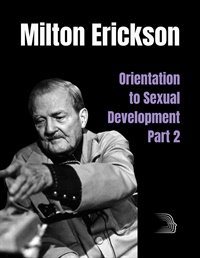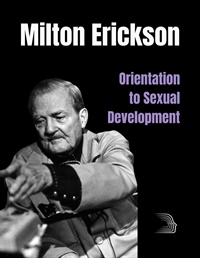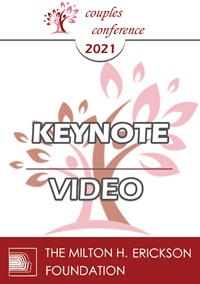
Credit available - Click Here for more information
- Average Rating:
- Not yet rated
- Topic Areas:
- Couples Therapy | Sex and Sexuality | Intimacy | Keynotes
- Categories:
- Couples Conference | Couples Conference 2021 | Online Continuing Education
- Faculty:
- Martha Kauppi, MS MFT
- Course Levels:
- Master Degree or Higher in Health-Related Field
- Duration:
- 1 Hour 3 Minutes
- Format:
- Audio and Video
- Original Program Date:
- Jun 06, 2021
- Short Description:
- Desire resides at the intersection of multiple systems, encompassing purely sexual aspects, numerous physiologic components, and a vast web of emotional, spiritual, and relational issues. In this skills-based presentation, Martha shares her approach to understanding complicated interconnected presenting symptoms, relational dynamics, and conceptualizing and treating issues related to desire.
- Price:
- $29.00 - Base Price
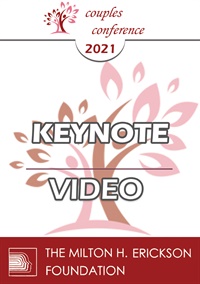
Credit available - Click Here for more information
- Average Rating:
- Not yet rated
- Topic Areas:
- Couples Therapy | Sex and Sexuality | Continuing Education | LGBTQ | Gender | Keynotes | Relationships
- Categories:
- Couples Conference | Couples Conference 2021 | Online Continuing Education
- Faculty:
- Joseph Winn, MSW, LICSW, CST-S
- Course Levels:
- Master Degree or Higher in Health-Related Field
- Duration:
- 1 Hour 2 Minutes
- Format:
- Audio and Video
- Original Program Date:
- Jun 06, 2021
- Short Description:
- This keynote will highlight core themes that are imperative for therapists to consider before working with relational systems that exist beyond the purview of heteronormativity. Specific topics will include becoming aware of ones sexological world views, understanding and working with sexual and relational health, and exploring what variant sexual, erotic and relational systems may offer heteronormative and monogamous couples in terms of increasing vulnerability, differentiation, and deepening relational attunement.
- Price:
- $29.00 - Base Price
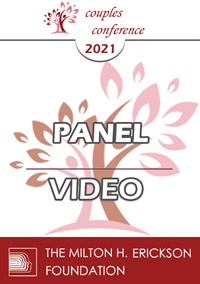
Credit available - Click Here for more information
- Average Rating:
- Not yet rated
- Topic Areas:
- Couples Therapy | LGBTQ | Sex and Sexuality | Topical Panels
- Categories:
- Couples Conference | Couples Conference 2021 | Online Continuing Education
- Faculty:
- Stan Tatkin, PsyD, MFT | Martha Kauppi, MS MFT | Shawn Giammattei, PhD
- Course Levels:
- Master Degree or Higher in Health-Related Field
- Duration:
- 1 Hour 1 Minutes
- Format:
- Audio and Video
- Original Program Date:
- Jun 05, 2021
- Short Description:
- Working online has led some therapists to feel more cautious about working with sexual issues. The panelists will describe their unique approaches and concomitant pitfalls. Benefits and liabilities will be addressed.
- Price:
- $29.00 - Base Price
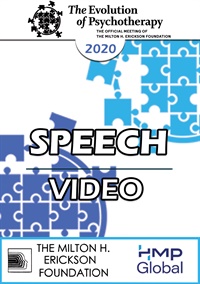
- Average Rating:
- Not yet rated
- Topic Areas:
- Couples Therapy | Sex and Sexuality | Speeches | Marriage
- Categories:
- Evolution of Psychotherapy | Evolution of Psychotherapy 2020
- Faculty:
- Michele Weiner-Davis, LCSW
- Course Levels:
- Master Degree or Higher in Health-Related Field
- Duration:
- 49 minutes
- Format:
- Audio and Video
- Original Program Date:
- Dec 13, 2020
- Short Description:
- One out of every three couples struggles with mismatched sexual desire—a formula for marital disaster. When one spouse is sexually dissatisfied and the other is oblivious, unconcerned, or uncaring, sex isn’t the only casualty; a sense of emotional connection can also disappear. Complicating matters is that fact that many couples (and some therapists) feel uncomfortable discussing sex and remain focused on “Red Herring” issues. This workshop offers a hands-on, collaborative model for addressing the "elephant in the room" and restoring sexual and emotional connection.
- Price:
-
Sale is $29.00
price reduced from Base Price - $59.00
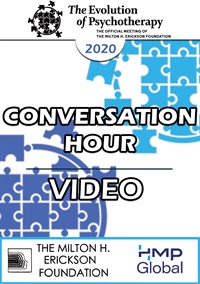
- Average Rating:
- Not yet rated
- Topic Areas:
- Gender | Sex and Sexuality | Conversation Hours | LGBTQ | Multicultural
- Categories:
- Evolution of Psychotherapy | Evolution of Psychotherapy 2020
- Faculty:
- Patricia Arredondo, EdD | Rick Miller, MSW
- Course Levels:
- Master Degree or Higher in Health-Related Field
- Duration:
- 1 hour
- Format:
- Audio and Video
- Original Program Date:
- Dec 12, 2020
- Short Description:
- This session will discuss specific affirmative approaches to working with gay men while understanding the crucial bond they have with their mothers.
- Price:
-
Sale is $29.00
price reduced from Base Price - $59.00
Tags: Gay LGBTQ Multi-Cultural
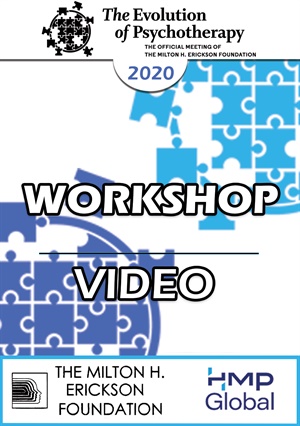
- Average Rating:
- Not yet rated
- Topic Areas:
- Sex and Sexuality | Workshops
- Categories:
- Evolution of Psychotherapy | Evolution of Psychotherapy 2020
- Faculty:
- Eli Coleman, PhD
- Course Levels:
- Master Degree or Higher in Health-Related Field
- Duration:
- 2 hours
- Format:
- Audio and Video
- Original Program Date:
- Dec 10, 2020
- Short Description:
- Clinicians will oftentimes encounter individuals with impulsive and/or compulsive sexual behavior. This workshop will describe the complexity of understanding this behavior, taxonomic and clinical considerations. This presentation will also review the current controversies regarding this phenomenon as a clinical entity. The presenter will provide an overview of his own assessment and treatment model utilizing a sex positive and integrated approach with case illustrations and discussion.
- Price:
-
Sale is $29.00
price reduced from Base Price - $59.00
Credit available - Click Here for more information
- Average Rating:
- Not yet rated
- Topic Areas:
- Milton Erickson | Sex and Sexuality | Ericksonian Hypnosis and Therapy Techniques | Experiential Therapy | Storytelling | Strategic Therapy | Hypnosis
- Categories:
- Erickson Materials | Erickson Streaming Video Collection | Milton H. Erickson Collections | Online Continuing Education
- Faculty:
- Jeffrey Zeig, PhD | Milton H. Erickson, MD
- Course Levels:
- Master Degree or Higher in Health-Related Field
- Duration:
- 1 Hour 8 Minutes
- Format:
- Audio and Video
- Original Program Date:
- Sep 24, 2020
- Short Description:
- In Part 2 of Dr. Erickson’s Orientation to Sexual Development, Milton Erickson continues his interesting lecture about the natural developmental processes involved with sexual/relational maturity. This video begins with Erickson telling charming stories of his sons sexually and relationally developing, which illustrate the principles outlined in the video.
- Price:
- $19.95 - Base Price
Credit available - Click Here for more information
- Average Rating:
- Not yet rated
- Topic Areas:
- Sex and Sexuality | Couples Therapy | Ericksonian Hypnosis and Therapy Techniques | Milton Erickson | Children and Adolescent Therapy | Humor | Hypnosis
- Categories:
- Erickson Materials | Erickson Streaming Video Collection | Milton H. Erickson Collections | Online Continuing Education
- Faculty:
- Jeffrey Zeig, PhD | Milton H. Erickson, MD
- Course Levels:
- Master Degree or Higher in Health-Related Field
- Duration:
- 1 hour
- Format:
- Audio and Video
- Original Program Date:
- Jul 07, 2020
- Short Description:
- In this video, Dr. Milton Erickson describes sexual development — from infancy to adulthood, with a focus on male sexual maturation. As Erickson’s describes sexual development, the viewer feels as if they are going through the process as well. Erickson also includes humorous anecdotes of his children as they grew into adults. At the end of the video Dr. Jeffrey Zeig comments on Erickson’s fascinating teaching methods and communication techniques.
- Price:
- $19.95 - Base Price
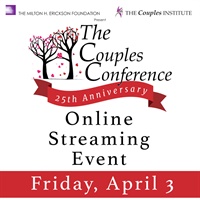
Credit available - Click Here for more information
- Average Rating:
- 26
- Topic Areas:
- Couples Therapy | Conflict | Developmental Therapy Model | IMAGO | Infidelity | LGBTQ | Relational Life Therapy Model (RLT) | Relationships | Sex and Sexuality
- Categories:
- Couples Conference | Couples Conference 2020 | Online Continuing Education
- Faculty:
- Ellyn Bader, PhD | Joseph Winn, MSW, LICSW, CST-S | Terry Real, LICSW | Harville Hendrix, PhD | Helen LaKelly Hunt, PhD | Martha Kauppi, MS MFT | Stan Tatkin, PsyD, MFT | William Doherty, PhD | ....
- Course Levels:
- Master Degree or Higher in Health-Related Field
- Duration:
- 4 Hours
- Format:
- Audio and Video
- Original Program Date:
- Apr 03, 2020
- Short Description:
- A streaming option in place of the Couples Conference 2020 4 hour event. This recording provides a comprehensive cross-section of a variety of approaches to couples therapy, including specific therapeutic models, discussions on sexual desire discrepancies, working with resistance in the therapy room and more.
- Price:
- $29.00 - Base Price
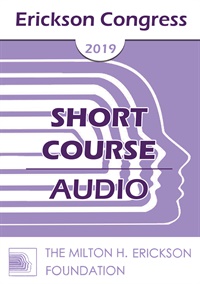
- Average Rating:
- Not yet rated
- Topic Areas:
- Short Courses | Pain and Healing | Sex and Sexuality | Multicultural | Psychotherapy
- Categories:
- Erickson Congress | Erickson Congress 2019
- Faculty:
- Mitra Rashidian, PhD | Robert Jaffe, PhD, LMFT
- Duration:
- 1 Hour 27 Minutes
- Format:
- Audio Only
- Original Program Date:
- Dec 12, 2019
- Short Description:
- According to research (Rashidian et al. 2015), Genito-Pelvic Pain/Penetration Disorder ‘Vaginismus’, causes significant sexual challenges for groups of sub-population women in the US. This workshop provides raw data and statistical analysis, supporting the hypothesis that these women experienced sexual pain as a manifestation of biopsychosocial conditions, resulting from cultural orientations. These include the cultural do’s and don’ts that shapes sub-population women’s sexual beliefs and attitudes, as a result of their life experiences within their cultures, impacting emotional and physical sexual experiences negatively.
- Price:
- $15.00 - Base Price
Please wait ...


